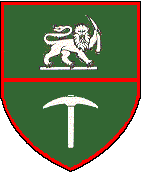|
WEBMASTERS NOTE; The
volunteers who fought alongside the Rhodesians during the bush war,
contrary to the popular perception abroad (and guerrilla propaganda),
were not mercenaries (in the legal sense of the word), but signed up in
the Rhodesian Security Forces under the same conditions and at the same
rate of pay as Rhodesian regulars. The word and tile "MERC"
appears here because the following articles are about MERCs who served
Rhodesia, But not necessarily in that mode. So the word is not politically
correct, so what!
|
|
It is perhaps the counter-insurgency war in Zimbabwe (formerly Southern
Rhodesia), fought between 1965
and 1980, that offered the elite mercenary soldier the most interesting
recent opportunity to practice his military skills. There were probably
around 1,500 non-Rhodesian mercenaries in the Rhodesian security forces;
including British, Australians, Canadians, Dutch, French, Germans,
Greeks and Scandinavians. Little official recruiting went on outside the
country; such recruitment as there was taking place by word of mouth and
written invitation. The Rhodesian Information Office advised applicants
on the enlistment processes, after which aspirants had to make their own
way to the training centers. Successful mercenaries did however have
their fares refunded.
Mercenaries who joined the Rhodesian armed forces did so for a minimum
term of two years and were treated identically to local volunteers.
Their basic salary, although a little higher than that then paid in the
British Army, was far from generous, and was certainly not in itself
sufficient reason for enlistment. Most men joined because they liked the
life, the comradeship and the excitement; few for reasons of overt
racism.
Mercenaries served in every element of the Rhodesian armed forces,
including the SAS (which was reputed to have a tougher selection process
than its sister-unit in Hereford), the Selous Scouts and the Rhodesian
Light Infantry (RLI). Others served in the counter-insurgency wing of
the rather confusingly named British South Africa Police (BSAP) Special
Branch.
With the coming of independence and the formation of Zimbabwe in 1980, a
number of elite units - including the SAS, the Selous Scouts and the RLI
- were disbanded. Those mercenaries who remained left quickly, many
joining the now unemployed Rhodesians from these former units in the
move south to seek employment with the South African Defence Forces. It
is believed that at least one unit crossed the border with its armory
and entire fleet of vehicles.
(END)
|




